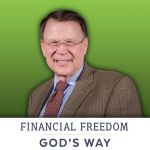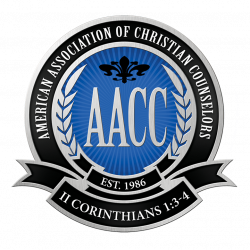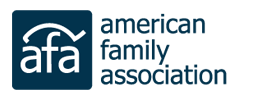

Seminar: The Economy 1 of 2
Dave Ramsey: The Economy
Minute with Maxwell: “Confidence”
UNEDITED TRANSCRIPT
INTRODUCTION
Welcome to Financial Freedom God’s Way Radio, where you are continuing to learn, apply, and pass on, Bible-based financial principles and applications so that you and your family will not only just survive, but can thrive during these very uncertain times.
Hi and welcome everyone, this is Bob Louder from Christian Financial Ministries, and it is an absolute honor to have you with, it really is. Where are we going during our 30-minute time together today?
- First of all—during the Your Finances in Perilous Times Radio Seminar, you are going to take your first look at what is really going on in our economy today, and begin to see what the Bible says you can do about it. No fluff, just truth. The truth about what is and what the Bible says you can prayerfully do about it.
- And interesting enough, Dave Ramsey and his daughter Rachel Cruse will also give us some insight into what’s happening economically and what we can prayerfully do about it..
- And finally, leading Christian author, speaker, teacher, and trainer John Maxwell with share with us his thoughts on the word “Confidence.” Now that’s a great word for todays troubled economic times.
So stay tuned, it’s going to be another great time together with the Lord. You are not going to want to miss a minute of today’s program.
As we start, as we always start, please open with me in a word of prayer. Father, we thank You for meeting with us again today. Please give us ears to hear all that it is you have planned for us, all to Your glory, in Jesus’ mighty name, amen.
BODY
Radio Seminar
Introduction
Now, as the Lord, and you and I start out the Your Finances in Perilous Times Radio Seminar today, remember you can always re-listen to this and prior programs plus get a copy of program transcripts by going to our website at www.christianfinancialministries.org .
Now, as we get started, do you know what I discovered about you the other day? You’re not going to like this, but here it is anyway. I found that you have a personal, outstanding debt of about $94k and it’s getting larger each day because you’re not doing such a good job on keeping up with your payments. Did you know that? Well, it’s absolute fact, my friend.
According to USDebtclock.org, the national debt is about $31½T–and your part is right at $94k, actually, each person in your family owes about $94k—now that info may tend to keep you up at night.
My friend, during our next couple of times together, you are going to discover some startling facts that surround our national economy, and your personal economy. You are going to see some bad news, and some good news—according to the Bible there is some good news about what you can do about all the bad news.
Now right up front, let me say that any study of our economy is really interesting and exciting…if you happen to be an economist. If you happen to be an economist, this is fun stuff.
- Why is this? Well, probably because economists—I have found that economists are a different breed of cat…they are a hard bunch to pin down.
- Someone once said that if we took all the economists in the world, and lined them up end-to-end; they would never reach a conclusion.
- I think that had to have been the same someone who said that the only reason for economic forecasting is to make astrology look respectable.
- On the other hand, some believe economists to be a pretty sharp group of people; after all, they have correctly predicted eight out of the last three recessions.” Eight out of the last three recessions…well, that joke didn’t work so well live either.
- Oops, you’re not an economist, are you? Well, if you are, I’m sorry about that. Enough of this, let’s get started.
Where are we headed for the next several sessions?
- First, we will define what an economy is.
- You will discover a bit about the Keynesian theory most folks do not know.
- You will see how Keynesian economics has played out in our country, and in our personal finances for about the last 100 years or so.
- You are going to see, very specifically, you are going to see exactly what God says is going on in our economy today and what God says we can expect to see in the future—all of that is from the Bible.
- Then finally, you are going to see some of the options that your family has, that our community has, and that our country has—you see, according to the Bible, there is still time, there are still some things we can do to turn around what we see going on financially in our family, our community, and in our country today.
Overview
So, this is where we are headed, but first, let me ask you a question—why do you believe that it is, that a short study of economics so important to us right now? I mean, if the Bible has so much to tell us about money, why do we start off by looking into the world instead of into God’s Word? –Interesting thought.
- Let me ask you another question that can help make the first question a little more clear. Let me ask you, how do you get rid of a bad habit in your life? Let’s say that you have a habit or two that you know are not too God pleasing, so what do you do about it. What is the process that you go through—what is the process you follow to get rid of those ungodly habits? Or, just in case you don’t have any bad habits in your life, think about it this way, how would you try to help someone else get rid of a bad habit in their life?
- So, what do you think? How do you get rid of a bad habit, any bad habit? Well, the experts tell you that to get rid of a bad habit is actually—it is actually a two-step process. First, you have to recognize the bad habit, and then secondly, you need to replace that bad habit with a good habit.
- My friend, before you can move to spiritually higher ground in your finances; you must first recognize some of your bad economic habits and understand how they came about. Because it’s then and only then that you can move to replace bad economic habits with God-pleasing economic habits.
- So this is very important, alright. It is important to see what is happening the world so we can see where we need to go to get close to God. Now, where do we start?
First, we need to agree on a definition of the word economy. For our purposes, an economy exists whenever you have two or more people willing to exchange anything of value. Now, that is the short definition—it’s workable for our purposes. An economy is when you have two or more people willing to exchange something for something else.
Economic History
Now, looking back into our economic history, prior to WWI, we had in the United States what economists then called a relatively “balanced economy,”
- That’s an economy in which supply and demand were pretty much equal.
- For example, when more money came into the economy—let’s say more gold was discovered or oil, or when crops were produced,
- Then the demand for goods and services went up
- And our economy grew.
- This was a healthy growth because it was based on real value—real value.
What is Keynesian Economics?
But then, history shows us that something happened. What happened was that early in the last century, an English economist by the name of John Maynard Keynes became the darling of the intellectual establishment with his “new economics.”
- Now, what exactly what is Keynesian economics? Well, the stated purpose—the stated purpose of Keynesian economics is actually two fold.
- The first and most important purpose is to allow the government to manipulate the economy. That’s the primary purpose. And by the way, that is not an opinion, that’s the stated purpose of Keynesian economics—to be able to allow the government manipulate the economy.
- The second purpose is to manipulate the money supply as the primary means whereby the government can manipulate the economy. Now, why would you want to be able to manipulate the money supply? Because Mr. Keynes correctly believed that any economy will grow if you simply add a little bit more money to it.
Here’ another way to look at it. This is “Keynesian Economic Theory 101,” a very simplified example of Mr. Keynes’ philosophy. And when I say “simplified” I really mean simplified, but it still paints a good picture for us. According to Mr. Keynes…
- First of all, it takes money to produce.
- More production—more production means—hopefully—more profit.
- More profit means more producers—more people are going to want to produce because of the profits.
- More producers mean more jobs.
- Then more jobs means economic growth. Now, so far so good. So far so good.
The Problem with Keynesian Economic Theory
But there is a problem with Keynesian Economic theory.
- But what happens if we don’t have the money to produce? Mr. Keynes said: Sure, it’s OK to use credit. It is OK to borrow the money to produce—to put borrowed money into the economy. Mr. Keynes said it was OK to substitute credit for dollars, to substitute credit for money. And this is where the Keynesian economic model begins to break down and have some significant problems.
- Why? Because credit means, what? Credit means higher prices, right? Why is that? Because the cost of the credit has to be passed on as a cost of doing business, doesn’t it? The cost to borrow money is called what? Sure, it’s called interest. Now, somebody has to pay what it costs to borrow the money, right? Who pays it? Sure, consumers do. We do. What happens? Interest costs get added into the cost of the product which causes prices to go up.
- What do we call it when prices go up? Inflation.
- What does inflation generally lead to? Generally, more and more use of credit. We have to borrow to be able to pay for what you likely couldn’t afford to pay for in the first place, right?
- What’s one of the main problems with Keynesian economics? Credit.
- My friend, listen to me here, most of us, including by the way, our national Government, most of us get into trouble because we spend more than we make. Is that not correct?
- And that being the case, let me ask you—what is the only way, what is the only way you can spend more than you earn? The only way to spend more than you make is to use credit.
- By the way, over the years Keynesian economic theory has been totally, absolutely discredited and disproved. It simply doesn’t work. Families find that it doesn’t work. Businesses find that it doesn’t work. As the matter of fact, the government of the United States of America is the only entity that I know of in this country at this time that is still trying to get Keynesian economic theory to work—and I have to add—as we have seen, they are not doing a good job is that area, are they?
How can I back that up? Because, in case you haven’t noticed lately, our government has a particular credit problem. Do you realize it took us as a nation, over 200 years to reach the first trillion dollars of national debt? We did that back in 1982. Then we doubled to two trillion in by 1986. In 1990 we tripled it to three trillion. And today—more than $36T.
Now, a trillion dollars is a lot of money. I know that a trillion dollars sounds like a lot of money, but how much money is #1T? Can you picture it? Can you picture a trillion dollars? Let me give you a hint.
- If you had a stack of brand new, $1k bills, 3″ high, you would be a millionaire. Now, right off the bat I have a problem with this definition, because I’ve never touched or even see a $1k dollar bill, new or used, but if you had a stack of them three inches tall you’d be a millionaire.
- If you had a stack of #1k dollar bills 300 feet high, you’d have $1 Billion dollars, B, billion.
- Listen, one trillion dollars is a stack of new 1k bills 62 miles high. And we are about 31 stacks high in debt.
- Larry Burkett, who was one of the very first Christian financial authors, Larry Burkett used to say that not only are we spending more money than we have, but pretty quickly we’re going to be spending more money that there is.
So, that a brief Economics 101 class—obviously there are a whole lot of other data points we could bring in, but
Look Forward
However, is it right or wrong, good or bad? Who is to say? Who is to evaluate? You? Me? Larry Burkett? Dave Ramsey? Our economist friends or radio or TV pundits? Our politicians?
- Listen, there is only one true measure, isn’t there—just one true measure—and that is God’s Word. During our next time together you are going to discover what God’s Word has to say. What does God have to say about our nation or about any nation that chooses to accept and act on HIS economic commandments and His principles, or what happens if our nation, if any nation chooses to ignore HIS economic commandments and principles.
- Next time—our next Radio Seminar time together is going to be another great time together, so don’t miss it.
Dave Ramsey
Interestingly enough, Dave Ramsey and his daughter Rachel Curze were talking about our economy the other day…and as always what they talk about makes a whole lot of sense—let’s see what they have to say about where we are economically today and what we can prayerfully do about it.
Great words—what can you do—what should you do during this time fo economic uncertainty? Don’t fear. Leave the fear with the Lord and prayerfully do what you can do. What can you do?? Learn to spend less than you make, get out of debt, save and a whole lot more. And if you need help to do what you can do, keep listening to Financial Freedom God’s Way Radio AND get some help from one of Dave’s trained financial coaches by going to his website at www.daveramsey.com. Great words, thanks Dave and Rachael.
Minute with Maxwell
Now, let’s start to wrap up our time together today with one of the highlights of all of our times together. Let’s spend a Minute with Maxwell as John Maxwell shares with us his thoughts on the word, “Confidence
Wow, Confidence, what a great word. Thank you John Maxwell.
CONCLUSION
And that wraps up our time together. So, let me closes us with a word of prayer. Father, we do thank You for bringing us together and teaching and encouraging us again today, and for each of the days yet to come, to Your glory, in Jesus’ mighty name, Amen.
Have a great rest of your day, won’t you, and we are looking forward to seeing you next time as you continue down your personal road to Financial Freedom God’s Way.





